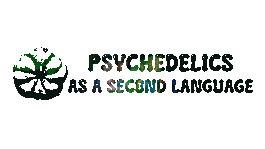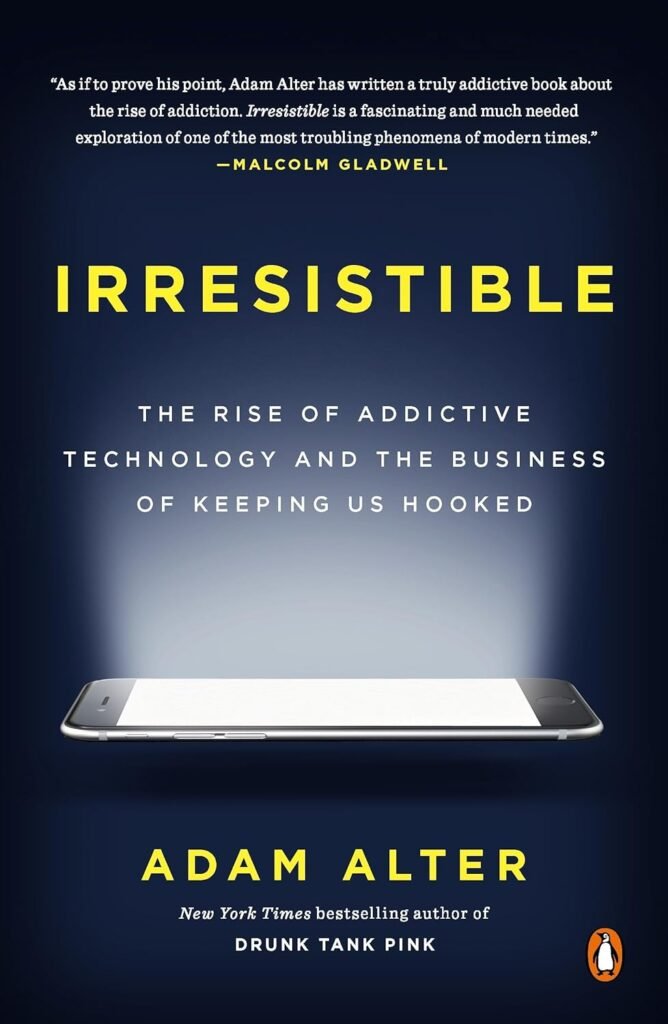How psychedelics might break social media
(Important: You might not be the same post-reading this article)
Since the first specimens on earth, one predominant trait has a heavy presence today. The will to gain power and to be at the top.
Animals hunted both to survive and to display power. When we think about the Jurassic Era described in our science and history books, we can remember a dinosaur stepping on its prey and roaring victoriously, demonstrating its power and ability to kill.
These behavioral patterns continued throughout the time and interspecies. Humans, for example, would scream when hunting to cause fear in their prey and demonstrate power. The most powerful warriors would wear animal skin or carry a part of a ferocious animal to demonstrate their power to another tribesman.
In early civilizations, warriors would scream and hit their shields to demonstrate their power through noise. Emperors and kings were hand-picked by their physical power, wealth, or influence among other citizens. When in power, they would grow their armies to become more fearsome toward other civilizations and control and conquer other communities to become feared by others. During the Age of Discovery, kings would invade other territories for produce, minerals, and other plant materials to become more powerful economically.
And if we think about religion as a whole, we can easily see that religion and religious discussions on who is more powerful.
We direct ourselves to God as “The whole powerful.” We have constant arguments about who this entity is. Is it Allah, God, Jesus, Rah, Yahweh, Zeus, or maybe Satan to some?
As a society, we need someone more powerful than a human to give us faith and someone to rely on when we are down.
However, some pagan religions decided to defy Christian beliefs and compare humans to God, saying that humans are the “true” creators of what we now know as the world, and decided to chase power.
And to non-religious parties, I would even go as far as saying that it would be easy to believe that the Government is God. The government rules out what we can or can’t do, what is considered good or bad, and ultimately decides our fate upon our sins (I will be fair and say that I don’t know what would be the equivalent of “Heaven” if the government is considered God, maybe something along the lines of becoming billionaire, or maybe get excused from not doing the IRS or filling taxes.
Such a need for power grew with us as a society. Even today, demonstration of physical strength, financial power or influence amuses us.
We all crave to become successful and crave power. Except by today’s standards, we no longer demonstrate our power by wearing a bear paw or the tooth of a tiger. Instead, we wear expensive brands, display our income, or social media influence.
If we look at what children dreamed of becoming 20 years ago, we can see a significant shift in their desired careers. Before the rise of YouTube and other social media platforms, television had a massive audience, and actors, sports stars, musicians, and political figures influenced children. As a result, it was common for children to say they wanted to become presidents, famous actors, or sports players.
With the rise of social media and the availability of content in the palm of our hands, we can easily hear kids saying that they want to become influencers and even start their own YouTube and TikTok accounts at an early age to start building up their following.
Despite seeming harmless, society has become a slave of social media. We crave more followers and become more influential on others.
Brands and companies end up engineering our minds with the power of marketing using social media by making us feel included in their brandings, feeding us the feeling of need and urgency of obtaining the product with low stock advertising, and telling us that we will become part of the brand, or display our power by using the brand, one example of this would be designer brands, which display that we have the financial power to buy expensive clothing and worn by celebrities in reality shows or during their walks to the globes.
This whole cocktail of being influenced by your favorite YouTuber, TikToker, getting likes on your posts, and being influenced by marketing strategies has a much deeper understanding on our brain than we might think.
Social media activates the brain’s reward center by releasing dopamine, a feel-good hormone linked with pleasurable activities, making the apps designed to become addictive. Whether it is the hunt for power, fear of missing out, or social acceptance, these apps have found a way to alter our perception of reality and neurochemistry.
Some call this constant manipulation and influence the matrix, and some call it a system, but it’s none other than a behavioral trait that has accompanied us throughout history. As you might notice, it is all part of our inherent search for power.
However, in some instances, some people can break from these traits. As you might have heard, plenty of celebrities and artists publicly say they hate fame, and on a larger scale, the hippie movement and the turn against the government during the anti-war movement in the 60s in the United States.
Especially during the anti-war movement, we can arguably say that psychedelic compounds were a catalyst for breaking those traits. As proof, we can fast-forward to today, as we are currently having a second psychedelic boom. Many people have turned against the system by abandoning their high-paid salaries, power, and influence to follow what brings them peace and what they love, turning the capitalist American Dream into an American Nightmare. Only a fool would think that the involvement of psychedelics would be a coincidence in this happening.
The United States government noticed this as well. Hence, during the 60s, when hippie communities began parading for peace and turning against war for power, we started witnessing a list of banned substances to maintain control over the population and keep power. Additionally, it was around that time that the United States government used these substances as “Truth Serums.” One of the most prominent examples is Project MK.ULTRA. (Read more about Project MK.ULTRA and governmental experiments)
This mismatch of psychedelics proven to be beneficial and being shut down by the FDA, and how these legal bindings impact scientific research on the production of compounds for the treatment of mental illnesses is something we would love to delve deeper into in the future, so stay tuned.
Subscribe to our newsletter
Don't miss new updates on your email
The correlation between the so-called “enlightenment” and psychedelics is still very misunderstood. However, those who experimented with psychedelics will likely use two keywords as proof.
Dissociation and Love.
When consuming psychedelics in a calm, relaxed setting to find more about ourselves, we often face Dissociation, a feeling of witnessing our life and the world as a third person. The state of dissociation allows us to understand habits we have formed over the years. Habits that sometimes go unnoticed, such as the unconscious way we often check our phone twice when simply trying to check the time, or habits such as constantly opening our social media to find out if someone texted us, commented on our newly published picture, or liked our content, check our email or interrupt our reading or work because our phone got a notification. We begin to notice how harmful these habits have become in our lives. Maybe we stopped connecting in real life when we go out. We stand side to side with our friends while looking at our phones. We stop interacting with people when we go out because we are hungry for what the media has to serve us, without even noticing that we’ve become addicted to the reward system given by these platforms and that we’ve fallen for a trap made to control our minds to crave power and feed the capitalist ideology.
As for the second keyword, if we ask someone to describe their psychedelic experiences, most reports will be confusing or weird, but plenty of them will have one common thing. Love.
Whether it is love for themselves, compassion towards others, or for the things we own and enjoy in our daily lives, psychedelics often promote this feeling of love and connection with others.
Once this happens, it’s arguably noticeable that for some time, people will want to connect with others in real life, share experiences, and spend time surrounded by what they love, doing what they love, and trying to figure out their meaning.
But here lies the counter side of the coin.
The “system” provides us with jobs, money, and tools for survival. How can we survive without it?
And without even noticing, the answers have already been given above! Analyzing your surroundings, and finding a niche that you love.
You can contribute to society with endless possibilities if we take accountability for creative niches such as art, writing, music, crafting, artisan, or even education based on personal beliefs (in fields such as philosophy or psychedelic education and harm reduction, for example), this brings us to the follow-up cliché that every human is functionally unique, your imagination functions uniquely, so creative work will be an endless way to contribute and leave your mark on the world.

Unfortunately, many humanly creative functions like writing and art are slowly vanishing with the rise of AI, but such features have one major flaw clear in everyone’s eye. AI designs may be okay to use, and the writing could need some adjustments so people and companies use them to save time and resources. However, after spending some time analyzing campaigns and posts made by various companies, it’s evident that they are overusing the power of AI. These posts become oversaturated, missing one key element that makes art and writing unique and only humans can provide, which is imagination and creativity.
Other niches, like alternative healthcare (psychedelic retreats, for example) and independent biological farming, are equally prevalent nowadays and are predicted to keep growing, considering the lack of people interested in rudimentary jobs such as agriculture and the constant seeking for treatments for mental illnesses caused by the distress of the human mind in the city- environments.
If you’ve read the article thus far, you might be concluding something rather interesting, and let me tell you that this same conclusion is the same that tribes which prevailed until today and decided not to move to cities and stay in locations such as the Amazon Rainforest or tribes living in the Omo Valley in Africa. Humans need to heal with nature, live in peace in nature-rich environments, and stop living in constant stress caused by city environments.
And let me tell you that I would argue that it all comes down to personal preferences, but at the end of the day, we all enjoy our hikes in nature, isolated from humanity, in a place without any reception, totally away from social media, and maybe healing with entheogens to connect with nature and forget our constant seeking for power, and social status.
So, should we be doubting ancient knowledge provided to us by tribes that maintained integration with their roots and the true origin of humankind? Or should we believe in paid influencers to share capitalist ideas via AI-created marketing or brainwash us into needing an x or y brand to be trendy or make us feel bad for being underproductive in comparison to what they post on their social media?
I will leave these criteria for you to think about.
As always, stay safe.
Sending love.

